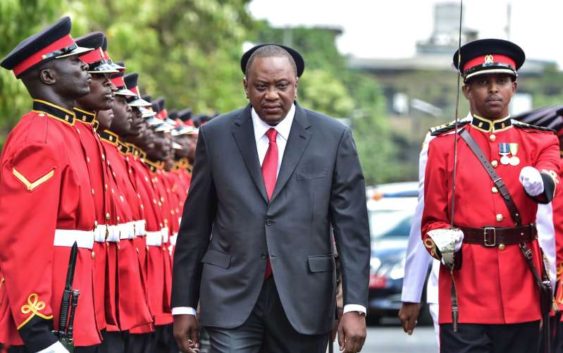- Governor Sanwo-Olu flags off Ojota-Opebi Link Bridge, to be completed in 20 months
- Allow Nigeria go to 2022 World Cup, don’t play qualifiers – Ghana Parliament member tells Black Stars
- There was no second sex tape, Kim Kardashian refutes Kanye West’s claims
- Jaruma Remanded In Prison Over Post On Regina Daniels And Ned Nwoko
- Lanre Gentry confirms paternity of last son with Mercy Aigbe, says ‘He’s my son’ (Photo)
Kenya now on track to end extreme poverty

Kenya is projected to “make a leap forward” in its efforts to end extreme poverty in the next decade.
A global data enterprise suggested in a post published last week by a US think tank that the share of abjectly poor Kenyans will plummet from nearly 21 per cent today to 4.3 per cent in 2030.
If current trends continue, says the Vienna-based World Data Lab, Kenya will eradicate severe poverty by 2032—two years later than the United Nations’ deadline for achieving its top sustainable development goal.
World Data Lab’s statistics for Kenya differ from those developed by the World Bank, which pegs the country’s 2016 poverty rate at a higher level.
Due to that difference, the World Data Lab “piloted the creation of an additional sub-national poverty model specifically just for Kenya,” notes Kristofer Hamel, one of the authors of the study posted by the Washington-based Brookings Institution.
“We stand by our data,” Mr Hamel wrote in an e-mail response to questions posed by this writer.
A few sub-Saharan countries have made faster progress than Kenya in improving living standards for those at the bottom of the economic ladder.
Equatorial Guinea, Gabon, Mauritius and Seychelles have already reduced their respective rates of extreme poverty to less than three per cent.
Mauritania and Gambia will join that group by 2030, according to World Data Lab projections.
Sub-Saharan Africa as a whole, however, will remain the world’s poorest region. And it is expected to account for a larger share of the global poor in 2030 than is currently the case.
More than 70 per cent of the world’s poorest people live south of the Sahara today, with that share projected to rise to 87 per cent a decade from now.
Poverty is expected to remain widespread in Nigeria and the Democratic Republic of Congo, World Data Lab forecasts.